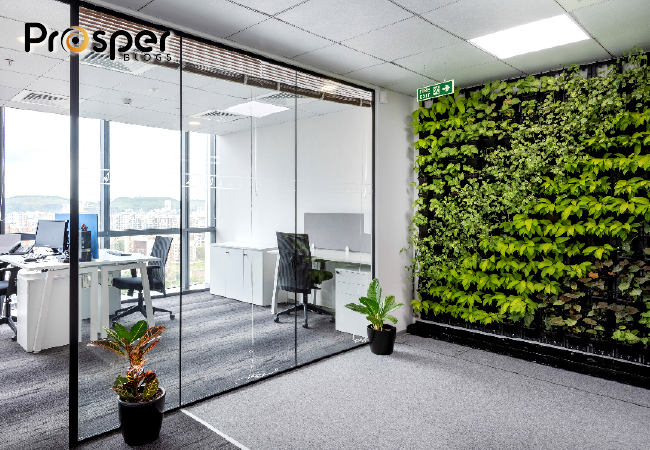
Sustainable Office Practices: Eco Friendly Supplies for a Green Workplace
Introduction:
In an era where environmental consciousness is paramount, businesses are increasingly recognizing the importance of adopting sustainable practices. Creating a green workplace not only aligns with corporate social responsibility but also contributes to a healthier planet. One of the key areas where businesses can make a positive impact is by transitioning to ecofriendly office supplies. In this blog, we'll explore sustainable office practices and highlight a range of ecofriendly supplies that can transform your workplace into a beacon of environmental responsibility.
Sustainable Stationery: Reducing Environmental Footprint
Recycled Paper and Notebooks:
Tree Friendly Choices: Opt for stationery made from recycled paper. Recycled notebooks, notepads, and paper contribute to the conservation of forests and reduce the need for new raw materials.
Refillable Pens:
Minimizing Plastic Waste: Say goodbye to disposable pens and embrace refillable ones. These pens are designed for longevity, and when the ink runs out, you simply replace the refill, significantly reducing plastic waste.
Biodegradable and Compostable Sticky Notes:
Eco Friendly Reminders: Choose sticky notes made from biodegradable and compostable materials. These alternatives break down naturally, minimizing the environmental impact of your notetaking habits.
Plant Based Ink:
Reducing Chemical Footprint: Consider pens and markers made with plant based inks instead of traditional petroleum based inks. Plant based inks are often derived from sustainable sources, reducing the use of harmful chemicals.
Sustainable Office Furniture: From Desks to Chairs
Recycled or Upcycled Furniture:
Circular Economy: Invest in office furniture made from recycled or upcycled materials. This promotes a circular economy by extending the lifespan of materials and reducing the demand for new resources.
Bamboo Desks and Chairs:
Fast Growing and Sustainable: Bamboo is a fast growing and renewable resource. Furniture made from bamboo is not only durable but also sustainable, as bamboo regrows quickly without the need for extensive cultivation.
Second Hand Furniture:
Extending Product Lifespan: Consider purchasing secondhand or refurbished furniture. This practice reduces the demand for new production and gives existing pieces a second life, minimizing the environmental impact.
Energy Efficient Office Equipment: Cutting Electricity Consumption
Energy Efficient Printers and Copiers:
Reducing Power Usage: Choose energy efficient printers and copiers that consume less electricity. Modern models often come with energy saving features, contributing to a greener office environment.
LED Desk Lamps:
Long Lasting and Energy Efficient: Replace traditional desk lamps with LED alternatives. LED lighting is not only energy efficient but also longer lasting, reducing the frequency of replacements.
Smart Power Strips:
Preventing Phantom Energy: Combat phantom energy consumption by using smart power strips. These strips cut off power to devices when they're not in use, preventing unnecessary energy drain.
Eco Friendly Breakroom Supplies: Reducing Single Use Waste
Reusable Utensils and Dishware:
Ditching Disposable Plastics: Provide reusable utensils, plates, and cups in the breakroom. This reduces the reliance on single use plastics, contributing to a significant reduction in waste.
Compostable Coffee Cups and Stirrers:
Greening Your Coffee Break: If disposable cups are unavoidable, opt for compostable alternatives. These cups, along with compostable stirrers, break down naturally, reducing their environmental impact.
Reusable Water Bottles:
Hydration with a Purpose: Encourage employees to use reusable water bottles. This not only reduces the need for single use plastic bottles but also promotes a culture of sustainability.
Waste Reduction and Recycling Initiatives: A Green Office Culture
Paperless Communication:
Digital Transition: Embrace paperless communication whenever possible. Use emails, project management tools, and shared digital documents to minimize the need for printed materials.
Recycling Bins for E Waste:
Responsible Electronics Disposal: Implement recycling bins specifically for electronic waste (ewaste). This ensures that old computers, printers, and other electronic devices are responsibly recycled.
Comprehensive Recycling Program:
Educating and Encouraging: Establish a comprehensive recycling program within the office. Clearly label recycling bins and educate employees on the importance of recycling paper, plastics, and other materials.
Sustainable Packaging Supplies: Responsible Shipping Practices
Eco Friendly Packaging Tape:
Recyclable Alternatives: When shipping packages, use ecofriendly packaging tape made from recyclable materials. This small switch contributes to reducing the environmental impact of packaging.
Biodegradable Packing Peanuts:
Sustainable Cushioning: Replace traditional packing peanuts with biodegradable alternatives made from materials like cornstarch. These dissolve harmlessly, eliminating longterm environmental concerns.
Recycled Cardboard Boxes:
Closed Loop Packaging: Opt for cardboard boxes made from recycled materials. This close doop approach minimizes the demand for new cardboard production and reduces overall waste.
Green Cleaning Supplies: Nontoxic and Biodegradable Options
Eco Friendly Cleaning Products:
Chemical Free Cleaning: Choose cleaning products that are environmentally friendly and free from harmful chemicals. These products are less toxic and safer for both employees and the environment.
Reusable Cleaning Cloths:
Cutting Disposable Waste: Replace disposable paper towels with reusable cleaning cloths. Washable and durable, these cloths significantly reduce paper waste in the office.
Green Air Fresheners:
Natural Fragrances: Opt for air fresheners that use natural fragrances or essential oils. Traditional air fresheners often contain harsh chemicals that can be detrimental to indoor air quality.
Conclusion: Fostering a Sustainable Office Culture
By embracing ecofriendly office supplies and sustainable practices, businesses can play a crucial role in reducing their environmental footprint. From stationery to furniture, energy usage, and waste reduction initiatives, every aspect of office operations can be adapted to contribute to a greener workplace. Implementing these sustainable office practices not only aligns with global environmental goals but also fosters a positive and responsible corporate culture. As businesses increasingly recognize the value of sustainability, incorporating ecofriendly supplies becomes not just a choice but a commitment to a better, more sustainable future.









